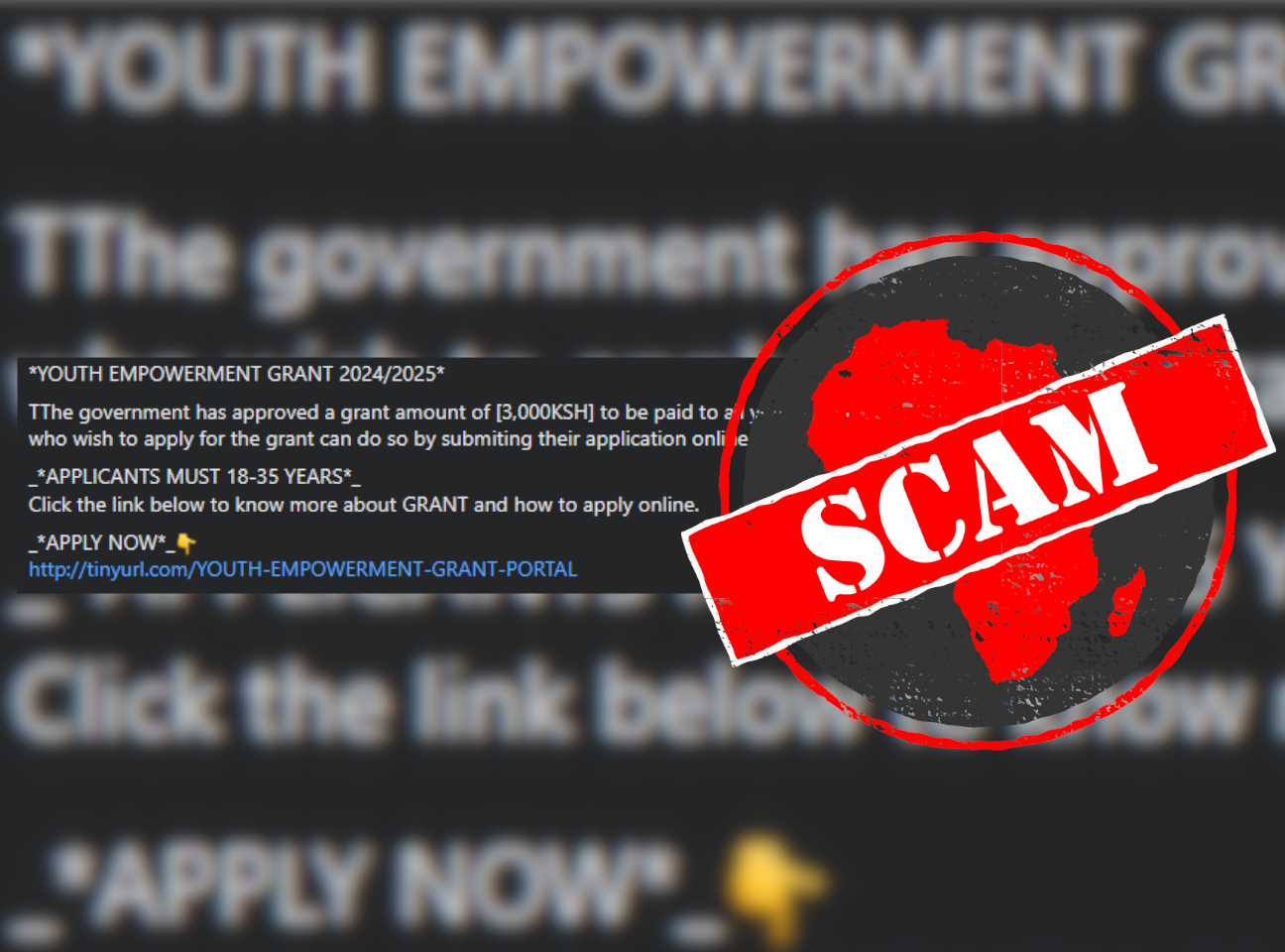IN SHORT: Several Facebook posts and a website claim that Kenya’s youth affairs ministry is giving out KSh3,000 in cash grants to young people. But the ministry says this is not true.
Some Facebook posts claim that the Kenyan government has approved a “youth empowerment grant” and encourage users to apply via the website link provided.
A 14 March 2024 post reads, in part: “*YOUTH EMPOWERMENT GRANT 2024/2025* TThe government has approved a grant amount of [3,000KSH] to be paid to all youths,All those who wish to apply for the grant can do so by submiting their application online .”
It also says applicants must be aged 18 to 35.
Similar posts can be found here, here, here and here. Some include the name of the Ministry of Youth Affairs, Creative Economy and Sports. Other posts claim the grant is KSh35,000 and give a link to a WhatsApp account.
But can young people in Kenya apply for an “empowerment grant” via this link? We checked.

Suspicious website unaffiliated with ministry
The link leads to a website with the headline: “Youth Development Grant Application Portal.” The website also bears the name of the youth affairs ministry and a photo of minister Ababu Namwamba.
The website’s address is https://grant-program.ke.portalreg.store/, which doesn't match that of the ministry’s official website – https://moyasa.go.ke/.
Government departments usually run their programmes and accept applications through their official websites.
The suspicious website features a form that asks for the applicant’s name, telephone number and email address. The next step is to enter your age and gender.
The site then asks the applicant to “share it with 5 groups or 15 friends on WhatsApp”. Clicking on the “share” button redirects users to WhatsApp.
This is a common tactic known as engagement bait, which is aimed at increasing a post’s reach and possibly directing traffic to a website.
‘Fake and misleading’ says ministry
The ministry, through its official Twitter and Instagram accounts, published a screenshot of the claim with the word “fake” stamped on it.
“Beware of this FAKE and Misleading Information,” it wrote.
Read our guide to Facebook scams and how to spot them here.
Republish our content for free
For publishers: what to do if your post is rated false
A fact-checker has rated your Facebook or Instagram post as “false”, “altered”, “partly false” or “missing context”. This could have serious consequences. What do you do?
Click on our guide for the steps you should follow.
Publishers guideAfrica Check teams up with Facebook
Africa Check is a partner in Meta's third-party fact-checking programme to help stop the spread of false information on social media.
The content we rate as “false” will be downgraded on Facebook and Instagram. This means fewer people will see it.
You can also help identify false information on Facebook. This guide explains how.




Add new comment